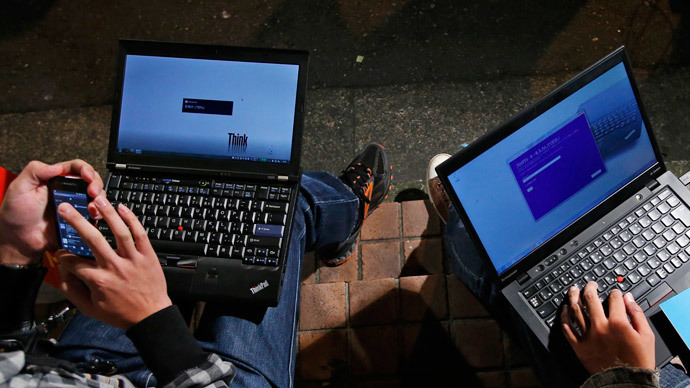Websites of several Russian state TV channels have been hit by a large cyberattack suspected to partly come from Kiev. Anonymous Caucasus claimed it was responsible for hacking Channel One TV’s site, saying it had “nothing” to do with Ukraine.
Russia’s Channel One on Thursday said its website was temporarily
unavailable due to a distributed denial-of-service (DDoS) attack.
“The website of the channel was unavailable from 12:15 to
13:53 Moscow time due to a DDoS attack from Kiev,” a
spokesperson for the channel told Itar-Tass, adding that the page
was now working normally.
However, as of 6pm Moscow time (2pm GMT), 1tv.ru was again
unavailable due to a new attack wave.
Meanwhile, the Russia-24 TV channel said on its website that the
internet resources of the All-Russian State Television and Radio
Broadcasting Company (VGTRK) were also targeted in a “massive
network attack.” Due to the distributed nature of the
attack, the media did not immediately comment on its origins.
According to Itar-Tass, the targeted Russian media have connected
attacks to their editorial policy of covering the recent events in Ukraine.
About an hour after the start of the DDoS attack on Channel One’s
website, Anonymous Caucasus hacker group proclaimed 1tv.ru
“tango down” on its Twitter page. While the group did
not issue a statement claiming responsibility for the attack,
this army slang phrase has been routinely used by Anonymous and
other hacktivist groups to report bringing down a target.
The group then tweeted that their actions had “nothing to do
with Ukraine, or all current events in this country, and we are
not waiting for anyone.”
Earlier this week, Anonymous Caucasus claimed responsibility for
disrupting the work of Russian internet news media LifeNews. The
group branded the media “lapdogs of [Russian security
service] FSB.” It also claimed it took part in attacks on
Syrian government websites in February.
Distributed denial-of-service attacks have been routinely used by
hackers for temporarily bringing down websites by means of
chocking their accessibility with a flurry of requests. Recently,
the power of such attacks has dramatically increased. Using
network protocol vulnerabilities of a large number of personal
computers and servers, the hackers have learned to “amplify” DDoS traffic to a staggering 400
gigabits per second. Anonymous Caucasus claimed it managed to
unleash a 250 Gbps attack on LifeNews.


